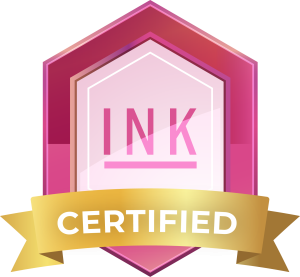Visitors use Google to find solutions many times a day. Search engines seek the answers. When a person enters a question, the search bot responds with answers they located. Search engines seek content that provides relevant, helpful answers to online questions. Quality SEO content is what Google wants.
Table of Contents
I recently had to take on the challenges of helping an aging parent relocate. It wasn't easy, and it wasn't something she wanted. But the family, her doctors, and her rehabilitation facility all agreed that at 97, Assisted Living was essential for quality of life.
After some serious research, I found a place about 20 minutes from my home that I felt suited her. She's not the resort crowd. Instead, family is her core trigger. Getting her relocated, I learned, was only step one. Now I had to reconnect her with an entire team of doctors.
Most medical offices focus on existing patients. As a result, their websites don't have much online information about what new patients they may accept.
Google became my search buddy. "Doctors accepting new patients in city/state."
I quickly learned I had to look for entry dates. But, unfortunately, they were not something easily accessible. And if you did find information, there was no way to tell how old it was.
The details of the information I needed were just NOT available online. So that left the old-fashioned method, phone calls.
After several, "Yes, we are accepting patients. But no, we aren't accepting medicare patients," I realized the problem was more complex.
The pandemic has left many doctors burned out. Many who had considered retirement did just that. If they weren't happy with their location, they decided now was the time to take a break and look elsewhere.
That left an elderly senior with significant health conditions 80 miles from her existing doctor. I needed to find someone—soon.
I tried one clinic, but she had two messed-up appointments. Both visits sent her home without being seen. That made it hard to trust them to provide quality care.
So, she is on a waiting list and dependent on a "walk-in" medical center for now. If there is something better out there, Google doesn't know about it—maybe the answers aren't online.
In my experience as both a consumer and a content consultant, I frequently see where information is missing. Have you ever noticed how many businesses don't have their location above the fold? Ever had to hunt for a way to ask questions?
Maybe you wanted to do something, but Google only found limited options. For example, I needed to find a Citi bank branch so I could deposit a check. Unfortunately, there were lots of ATMs but no branches in my area. In addition, most ATMs did not clearly describe transactions handled.
We need to make sure websites can answer all the questions prospective visitors may ask Google. If we don't, marketing efforts work under a handicap.
We need to ensure our content is current, helpful, and answers all the potential Google questions to be effective and search engine optimized.
An adage says, "the winner is the company who can pay the most to reach their prospects." However, that only works if the content provides what the searcher is after. And if the search engine can't identify the answer, it doesn't share it.
It's essential to use SEO techniques in all content, whether you want to draw traffic organically or boost it with paid ads, including positioning.
It's paramount that we recognize that optimizing for SEO has changed dramatically over the past 15 years. In the past, techniques were more manipulative, smoke and mirrors. Those techniques won't work anymore.
Google and other search engines have evolved, and AI has become more sophisticated. So instead, focus on your goals, what your visitors are searching for, and is mobile-friendly. In today's world, users want their search to work equally well on all devices.
It's essential to know what your objectives are. For example, some businesses focus on Google rankings. Others prioritize increasing web traffic. A third group is looking for more leads and sales.
If you don't have clear objectives, it's much harder to achieve them. So take time to clarify and prioritize what you want to accomplish with your marketing.
It's important to know what the person you're trying to reach is thinking.
We know they are searching. The answer to discover is the intent behind the search. Then we can make sure to include those answers in our content in a manner that will make the search engine act on it.
Smartphones have changed the way we get information. Now we want answers no matter where we are or what type of device we happen to be using. That makes it essential for every business to make sure their website is easily accessible.
Good web hosts can make sure your pages load quickly and are friendly to phones, tablets, laptops, and desktops.
Blending these techniques with top-quality content that is fresh, relevant, and SEO optimized can maximize long-term organic growth and enhance paid advertising.
We first identify their marketing goals. Then we evaluate their site for accomplishing them with SEO techniques. Finally, we look for issues with content's technical and creative aspects that may impact SEO results.
Need an SEO Audit? Contact [email protected] for a free mini-audit. Offer expires 9/27/2021.
 Judith Culp Pearson receives three top honors
Judith Culp Pearson receives three top honors
at the annual Society of Permanent Cosmetic Professionals in
Ft. Worth, Texas - October 7-9, 2023




